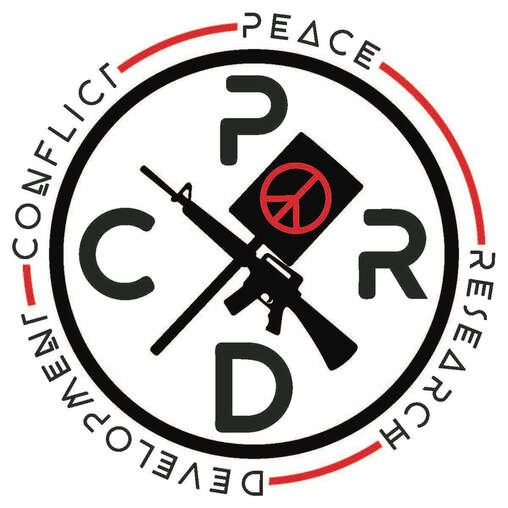After several decades of social science research on the topics of political conflict/violence as well as peace (e.g., onset, variation, lethality, type, duration, termination and aftereffects), many areas remain underexplored. For instance,
CPRD attempts to address these and gaps in existing knowledge through the application of innovative and rigorous evidenced-based research on conflict and peace. Most projects and/or papers involve single cases that are disaggregated in a highly detailed manner, in line with the sub-national and micro foundational movement in conflict studies - indeed, this is perhaps where most of the research discussed in CPRD is going. Others involve a more traditional macro orientation where the unit of analysis is a nation-year or conflict dyad, viewed more globally. CPRD is explicitly interested in trying to assess what one learns about conflict/violence and peace from engaging in both efforts at the same time. Accordingly, research is open to levels of analysis, methodological orientation and geographic focus.
CPRD seeks to bring together a diverse intellectual community from across the University of Michigan campus. At present, our core political science faculty include Christian Davenport, Yuri Zhukov, Chris Fariss, Ragnhild Nordaas, Ian Osgood, Mark Dincecco, Justine Davis, Shea Streeter, Edgar Franco Vivanco and Megan Stewart (the Co-Directors of CPRD), consistent participants ( James Morrow) and several special attendees who show up from time to time (Robert Axelrod, Mary Gallagher, Brian Min, Pauline Jones-Luong and Barbara Koremenos). Our broader objective is to eventually involve faculty and students from across the social and natural sciences, and create an interdisciplinary conflict/violence & peace program that builds on the insights of different disciplines: e.g., sociology, psychology, economics, organization, law, anthropology, complex systems, evolutionary biology, intergroup relations and research centers throughout the university.
- we know much more about behavioral challenges against authorities than government activities against behavioral challengers/challenges;
- we know more about conflict and violence than we do about peace/peace-building;
- we know more about the onset, type and lethality of conflict and violence but less about duration, termination and aftereffects;
- we know much more about overt activities (e.g., civil war, human rights violation and protest) than about covert activities such as electronic and physical surveillance;
- we know more about individual forms of conflict or many different forms lumped together in an index than we do about distinct combinations of behaviors considered at the same time.
CPRD attempts to address these and gaps in existing knowledge through the application of innovative and rigorous evidenced-based research on conflict and peace. Most projects and/or papers involve single cases that are disaggregated in a highly detailed manner, in line with the sub-national and micro foundational movement in conflict studies - indeed, this is perhaps where most of the research discussed in CPRD is going. Others involve a more traditional macro orientation where the unit of analysis is a nation-year or conflict dyad, viewed more globally. CPRD is explicitly interested in trying to assess what one learns about conflict/violence and peace from engaging in both efforts at the same time. Accordingly, research is open to levels of analysis, methodological orientation and geographic focus.
CPRD seeks to bring together a diverse intellectual community from across the University of Michigan campus. At present, our core political science faculty include Christian Davenport, Yuri Zhukov, Chris Fariss, Ragnhild Nordaas, Ian Osgood, Mark Dincecco, Justine Davis, Shea Streeter, Edgar Franco Vivanco and Megan Stewart (the Co-Directors of CPRD), consistent participants ( James Morrow) and several special attendees who show up from time to time (Robert Axelrod, Mary Gallagher, Brian Min, Pauline Jones-Luong and Barbara Koremenos). Our broader objective is to eventually involve faculty and students from across the social and natural sciences, and create an interdisciplinary conflict/violence & peace program that builds on the insights of different disciplines: e.g., sociology, psychology, economics, organization, law, anthropology, complex systems, evolutionary biology, intergroup relations and research centers throughout the university.

